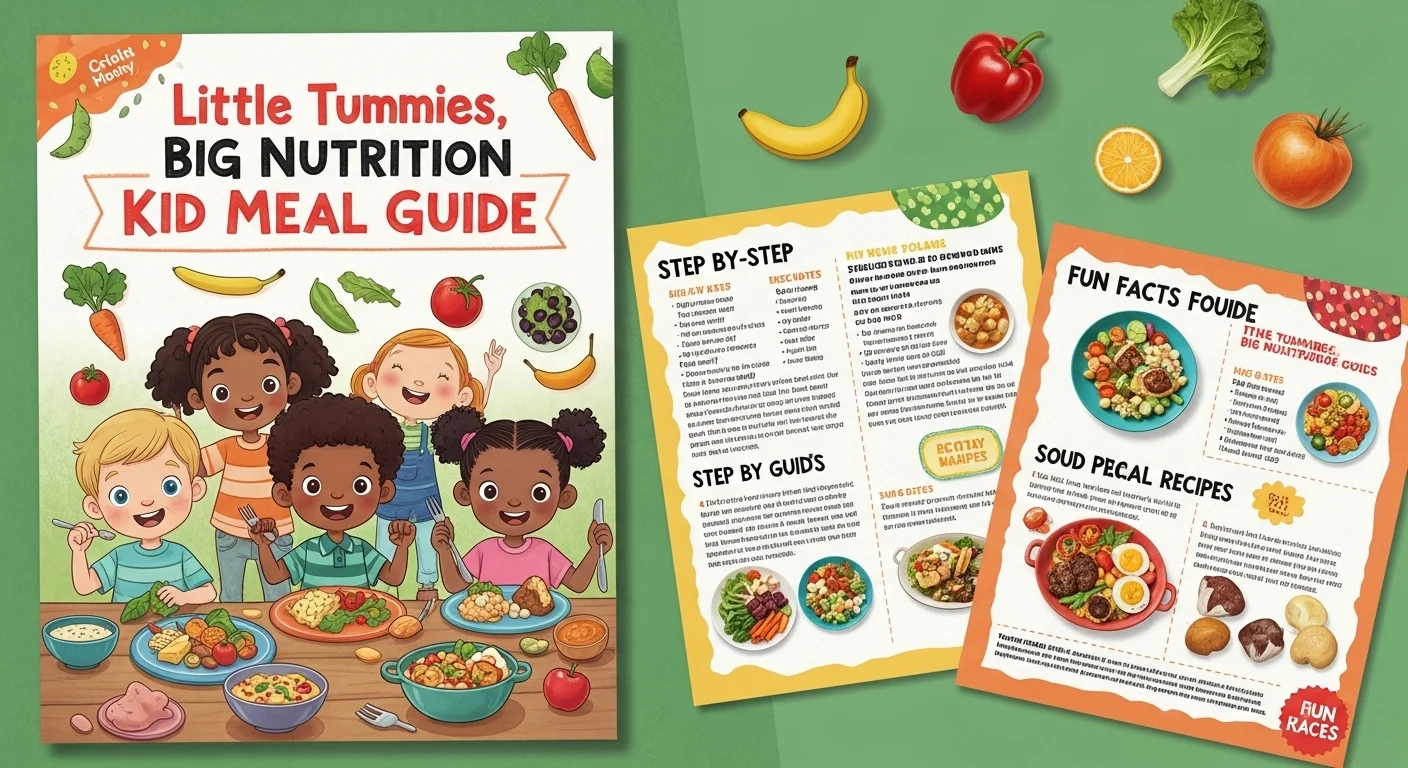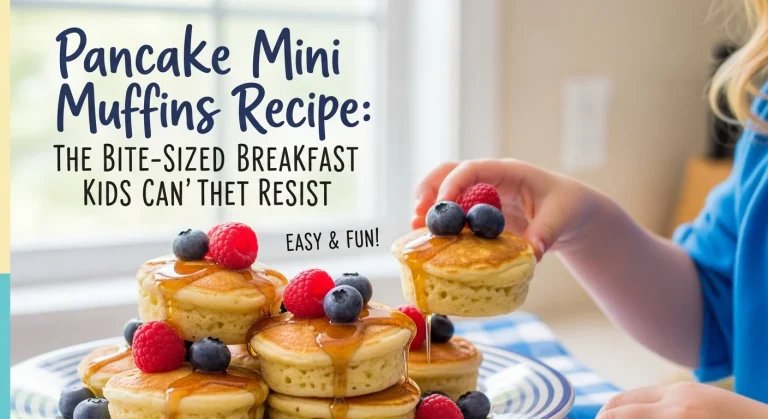Little Tummies, Big Nutrition: Kid Meal Guide
Are You Feeding Their Tummy… or Fueling Their Future?
Some days, my toddler eats a grape and declares he’s full. Other days, he asks for snacks every 15 minutes like a tiny, adorable food critic. Sound familiar?
Feeding kids is more than just filling their bellies—it’s about nurturing growing brains, building strong bones, and giving them the emotional energy to explore the world. But let’s be honest—between tantrums, time limits, and picky preferences, “balanced nutrition” feels like a distant dream.
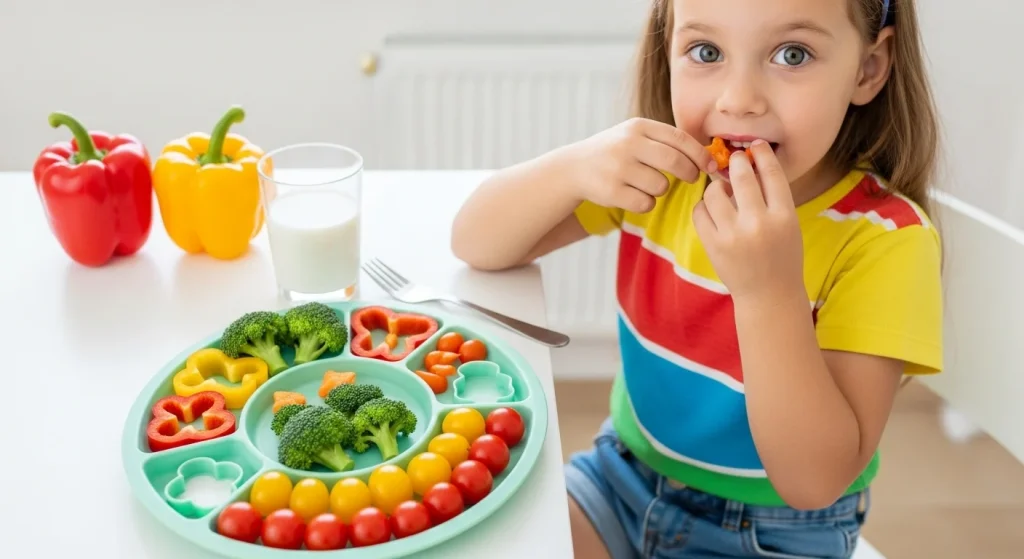
So what do busy, exhausted parents need? A real-life guide with simple meals packed with mighty nutrients, plus honest tips from a mom who’s been there.
Let’s dig in.
Why Kid Nutrition Matters (Even on the Hard Days)
When kids eat well, it shows. They sleep better, focus longer, play harder, and (bless us all) have fewer meltdowns. A nutrient-rich diet:
- Boosts immunity and growth
- Supports cognitive development
- Regulates mood and behavior
- Builds lifelong eating habits
Still, healthy doesn’t mean complicated. It’s about real food, real ingredients, and real flexibility.
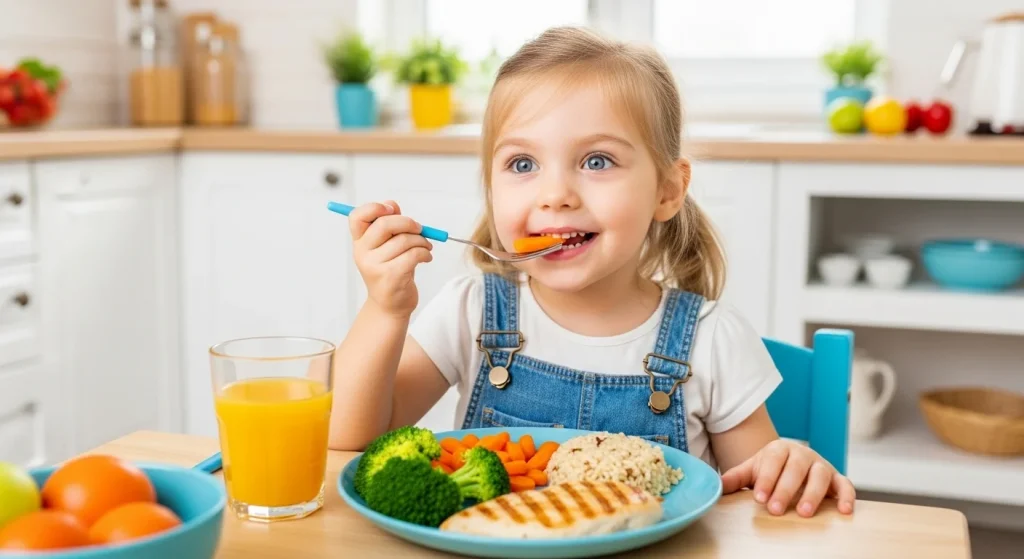
10 Nutrition-Packed Meal Ideas Kids Will Actually Eat
These are tested in my own chaotic kitchen, and every recipe comes with a real-mom stamp of approval.
1. Rainbow Quesadillas
Why it works: Melty cheese hides the veggies. They won’t even notice the spinach.
What’s inside: Whole wheat tortilla, bell peppers, spinach, corn, shredded cheese
Tip: Let your kid choose the colors. The more colors, the more nutrients.
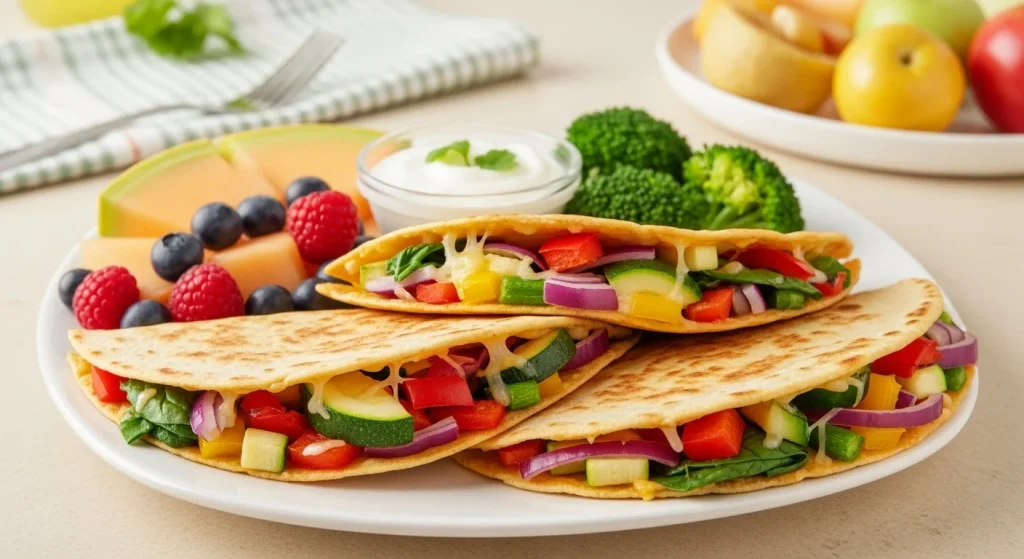
2. Mini Veggie Muffins
Great for: Breakfast or lunchboxes.
What’s inside: Eggs, carrots, zucchini, cheese, oats
Mom win: Freezable. I bake a batch on Sundays, and heat them in 30 seconds.
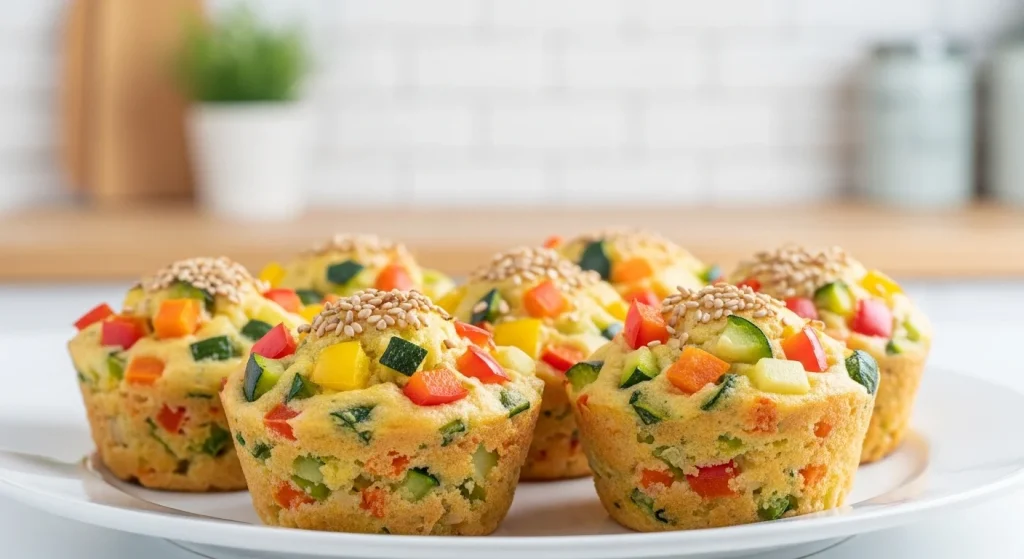
3. Sweet Potato Tacos
Why it’s magic: Kids love to hold food. These soft tacos are finger-friendly.
What’s inside: Roasted sweet potato cubes, black beans, avocado, Greek yogurt
Bonus: Iron-rich + loaded with fiber = fewer sugar crashes.
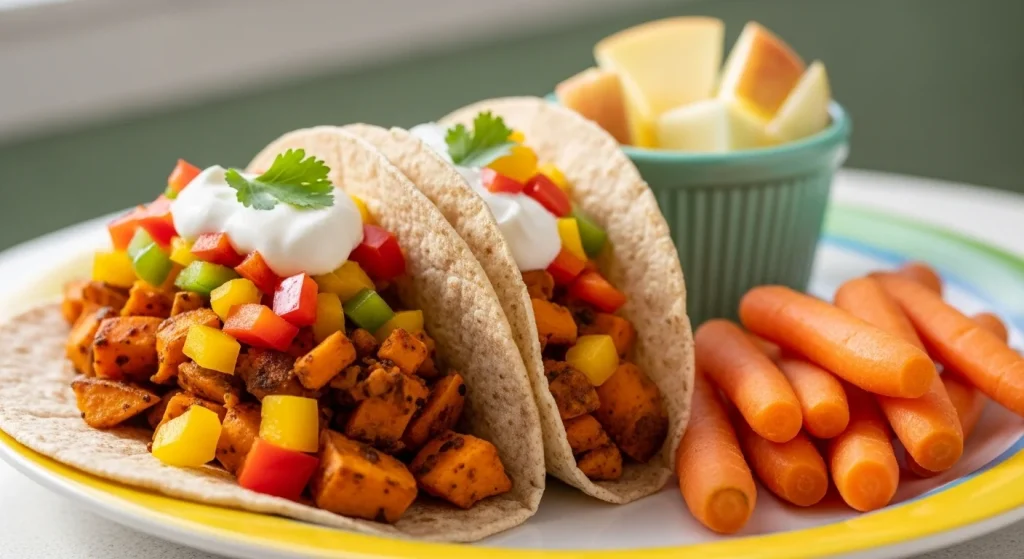
4. Chickpea Nuggets
Alternative to: Store-bought nuggets full of additives
What’s inside: Mashed chickpeas, breadcrumbs, spices
Serve with: Hummus or yogurt dip (because dipping is 50% of the fun).
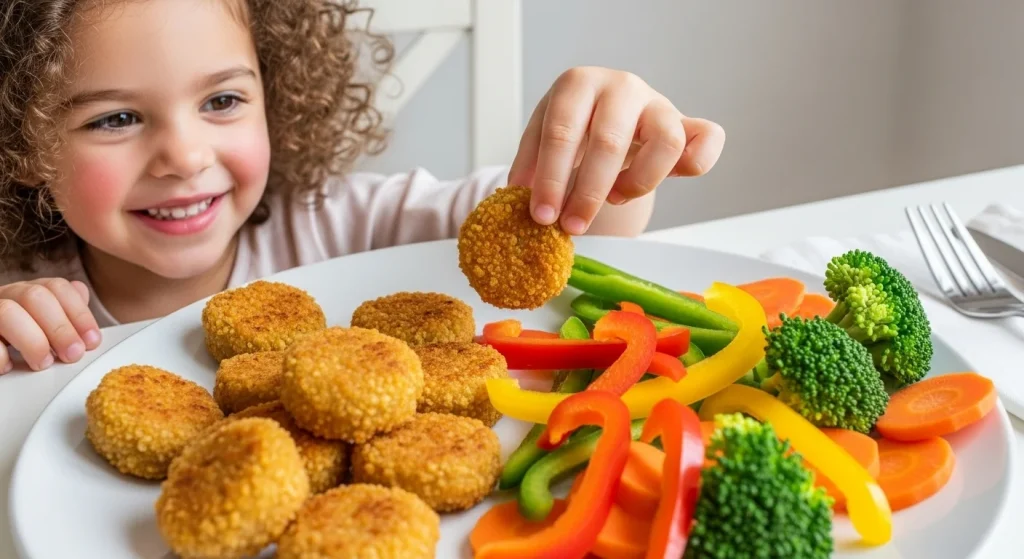
5. DIY Pizza Pitas
What they’ll say: “I made this!”
What’s inside: Whole wheat pita, tomato sauce, mozzarella, mushrooms, peppers
Why it’s genius: Giving them control = fewer battles.
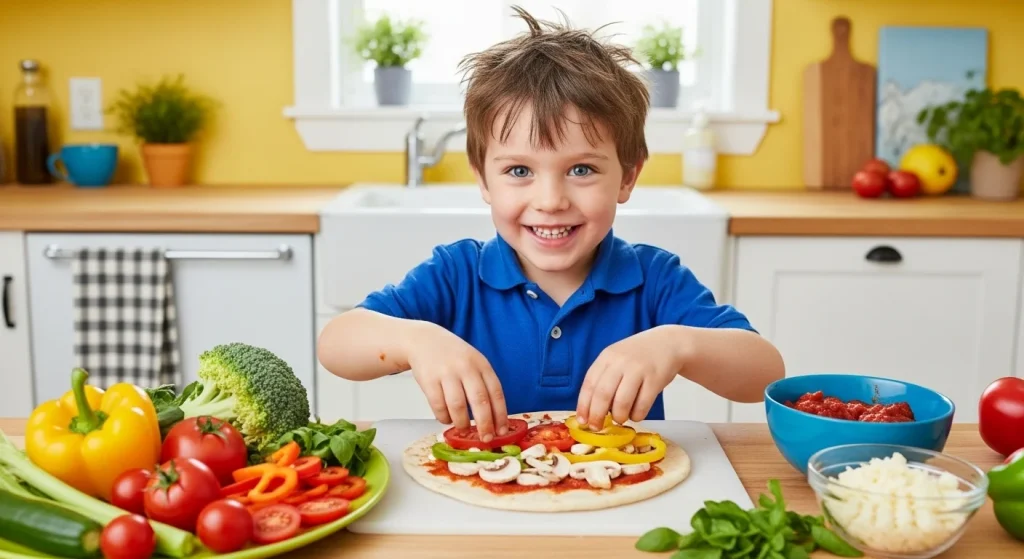
6. Fruity Oat Bowls
Perfect for: Slow mornings or power-packed dinners
What’s inside: Oats, banana slices, berries, chia seeds, almond butter drizzle
Add flair: Sprinkle cinnamon or cocoa powder for a “chocolate surprise.”
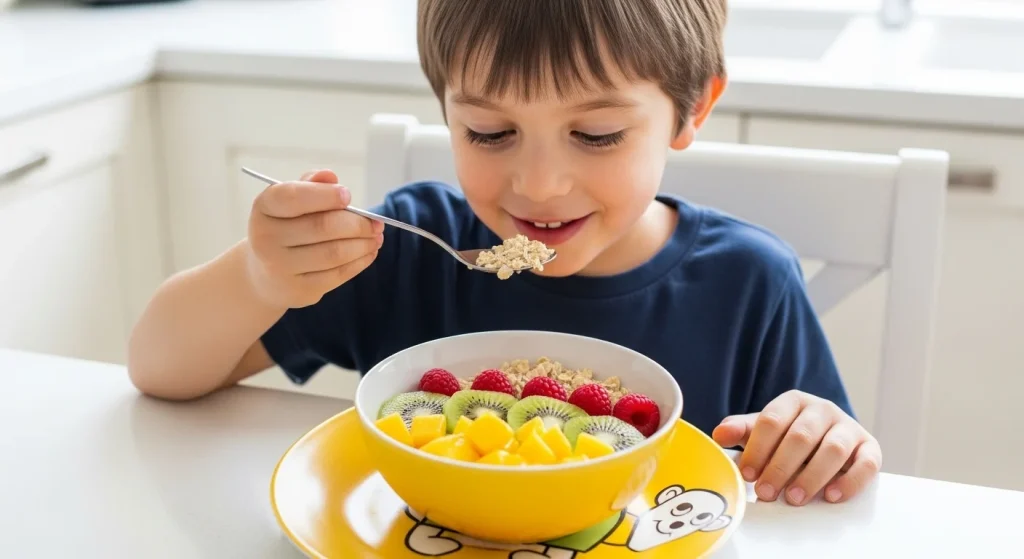
7. Veggie Mac ‘n’ Cheese
Hidden hero: Cauliflower purée in the cheese sauce
What they taste: Creamy, cheesy comfort
What you know: They’re getting vitamins without even realizing.
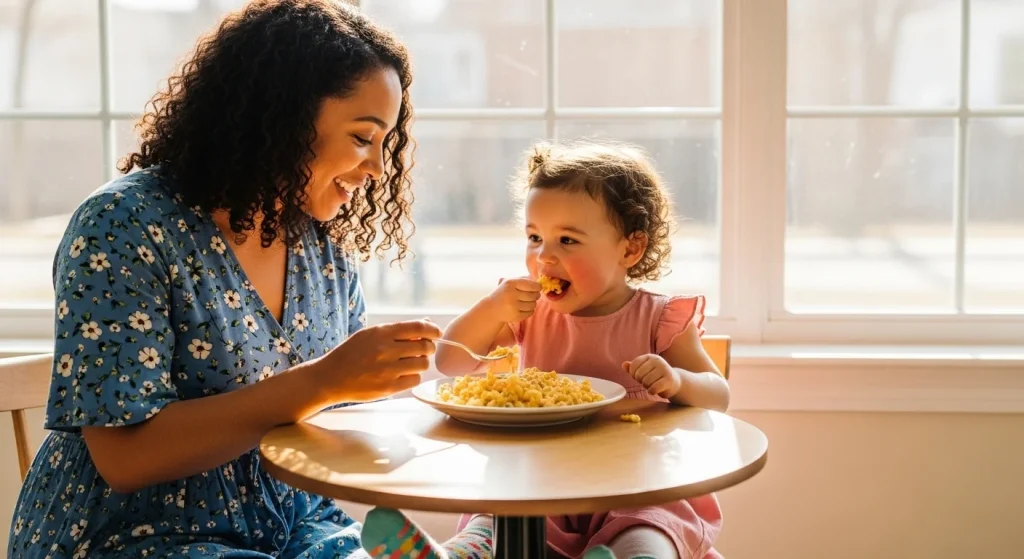
8. Banana Pancake Sandwiches
Fun & filling: Mini pancakes with peanut butter and banana in the middle
Why I love it: Great for tiny hands + perfect snack on the go
Upgrade: Use oat flour or mashed oats for added fiber.

9. Salmon Rice Balls
Inspiration: Japanese onigiri
What’s inside: Cooked salmon, rice, sesame seeds, avocado
Kid-friendly: Press into fun shapes using cookie cutters or silicone molds.

10. Veggie-Packed Pasta Sauce
Sneaky tip: Blend spinach, carrots, and zucchini into marinara
Result: Your picky eater gets 4 veggies in one bite.
Want more ideas like this? Check out this list of veggie-packed meals your kids will actually eat to keep the nutrition going strong.
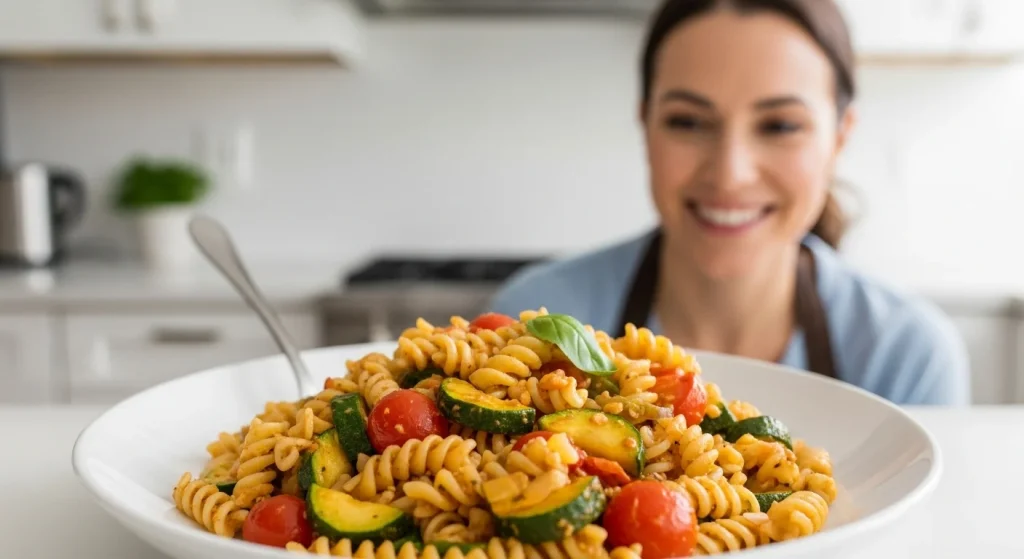
How to Make Meals Appealing to Kids (Without Losing Your Mind)
Some honest, mom-learned tricks:
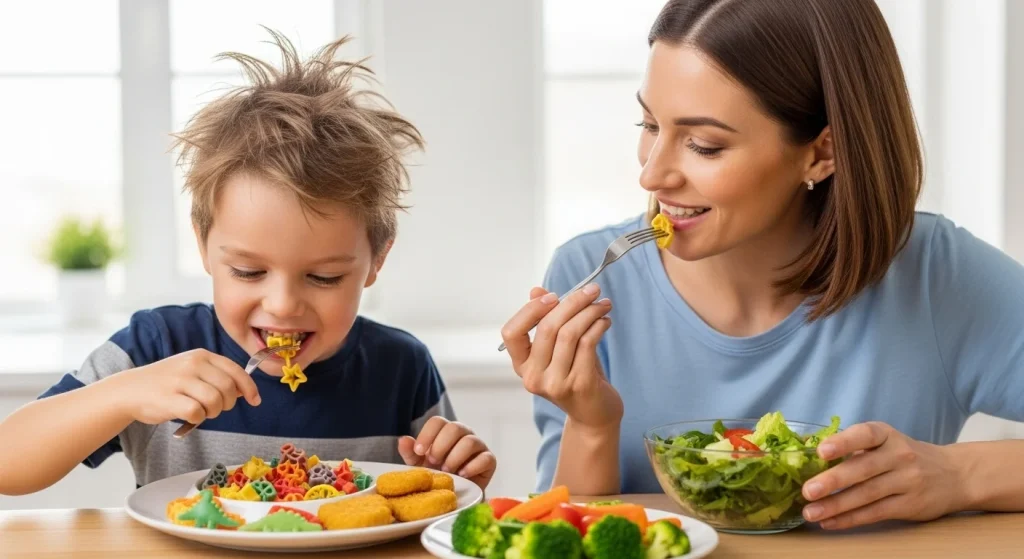
1. Let Them Help
Kids who help make meals are more likely to eat them. Give small tasks:
- Stirring
- Sprinkling cheese
- Picking veggies
2. Serve Familiar With New
Always introduce a new food next to a favorite. It feels safe and less overwhelming.
3. Fun Shapes, Real Ingredients
Use cookie cutters for sandwiches or fruits. Presentation doesn’t need to be fancy—just playful.
4. Normalize “Tasting” Not Finishing
Remove pressure. One bite is a win. If they say “yuck,” calmly say, “That’s okay. Maybe next time.”
How I Handled the Food Fight Phase
My daughter once cried because her broccoli “looked sad.” I was ready to give up. But slowly, I made tiny tweaks:
- Started meal prepping for myself, and offered her a mini version.
- Talked about what food does, like “carrots help you see in the dark.”
- Made food stories at the table, like “this egg used to be a superhero!”
Now, she asks for avocado. And that broccoli? It’s apparently not so sad anymore.
Smart Toddler Nutrition Tips Every Parent Should Know
- Always offer water first before juice or milk.
- Don’t label foods “good” or “bad” — just “sometimes” and “everyday” foods.
- Be consistent, not perfect. A balanced week matters more than a perfect day.
Create a Mealtime Environment That Nurtures
A calm, predictable space helps kids feel safe around food. Want to level it up?
Check out these toddler learning space ideas that blend mealtime with playful growth and emotional connection.
FAQs About Feeding Kids Right
How do I know if my child is getting enough nutrients?
If your child is energetic, sleeping well, growing steadily, and not constantly sick, you’re likely doing great. A multivitamin may help fill occasional gaps.
What’s the best way to handle picky eating?
Patience and exposure. Keep offering variety without pressure. It may take 10+ tries for a new food to be accepted.
Can toddlers really eat what we eat?
Yes! With a few modifications (soft textures, low salt/spice), most family meals are toddler-friendly.
Are snacks okay between meals?
Definitely. Opt for protein + fiber combos like apple and peanut butter, yogurt with fruit, or boiled eggs and toast strips.
Final Thoughts: Your Love Is the Real Superfood
You don’t need to serve Instagram-worthy bento boxes. You just need to care—and clearly, you already do.
Nutrition is not about perfection. It’s about creating habits, moments, and memories that teach our little ones how to listen to their bodies and love their meals.
So next time you pack that lunchbox or fix a quick dinner, remember: you’re not just feeding them. You’re shaping how they feel about food—and themselves—for life.

